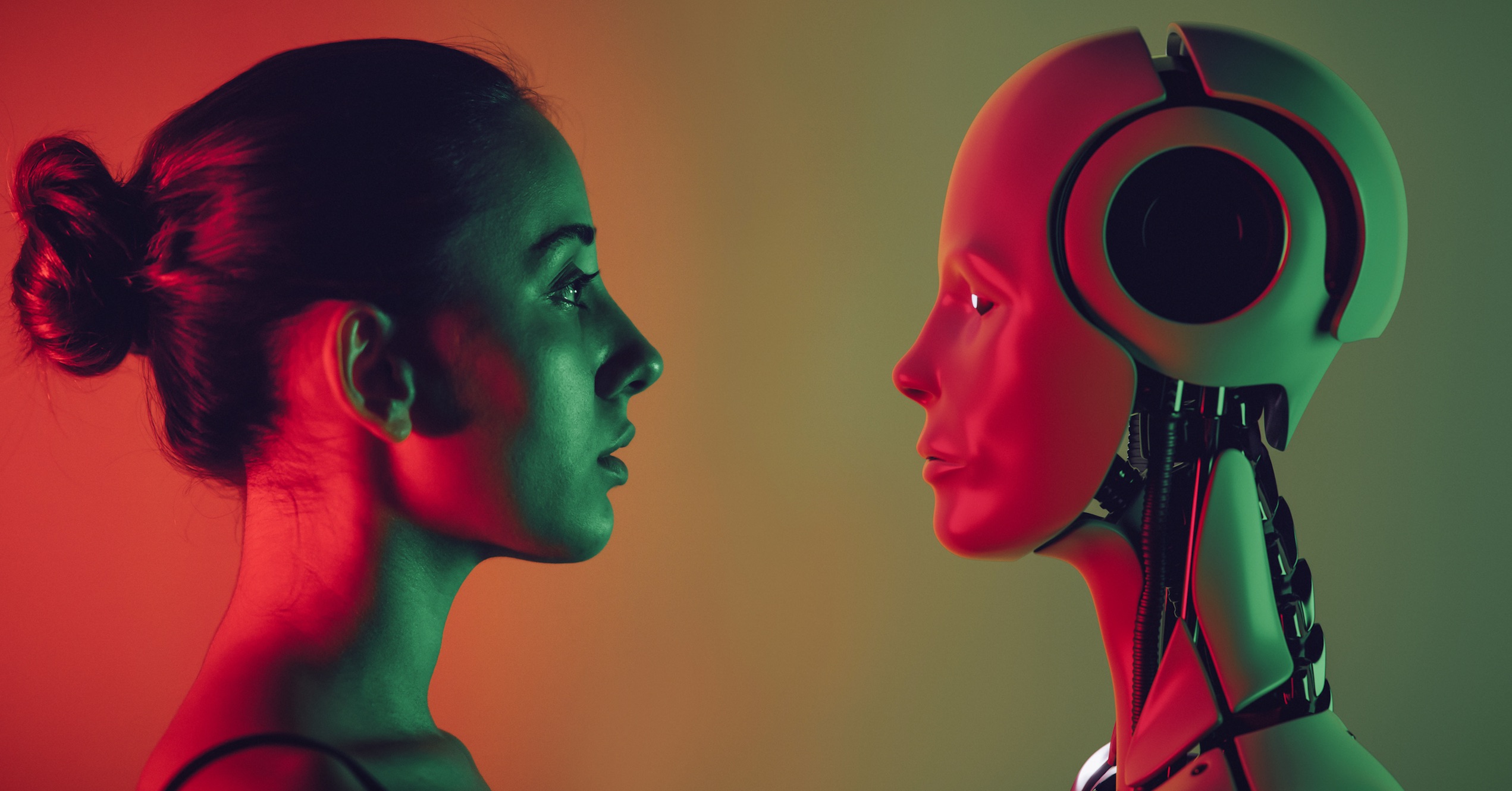Romance is a woman’s game. From literary bodice-rippers to Twilight to fan fiction (arguably, soap operas are also a part of this lineage), literary erotica has long been a female-dominated form of escapism. At the event horizon of a new technological era, this impulse has found a new form: the AI boyfriend.
Reports this week have shown that using artificial intelligence for companionship is growing in popularity, especially among women. Data indicates that companion apps are used 10 times as much as other AI apps, such as messaging and content generation platforms. So what’s driving this shift from human companionship to computer love, and is it sustainable?
While love stories have existed since time immemorial, the modern romance novel truly came into its own in the 20th century. Born out of the sentimental novels of the 18th and 19th centuries, it wasn’t until the Thirties that British publisher Mills & Boon began to codify the format we recognise today. Their formula was simple yet effective: a strong, often brooding hero; a virtuous, if somewhat naive, heroine; and a series of obstacles to be overcome before the inevitable happy ending.
After a further boom in the Seventies offered women a safe space to explore desire and agency at a time when social norms were rapidly shifting, the advent of the internet evolved the genre once again. The emergence of online roleplaying in Multi-User Dungeons (MUDs), chatrooms, and eventually forums served much the same purpose as romance novels, as these conversations often turned erotic. These virtual spaces allowed users to craft idealised personas and engage in fantastical relationships, free from the complications of real-world interactions. The anonymity of the internet provided a haven for experimentation.
Enter the AI boyfriend — the latest product of humanity’s endless obsession with romance. These digital beaux offer the fantasy of a perfect partner – attentive, adaptable, and available – without the messiness of human relationships. Like internet forums and historical romance novels before them, AI boyfriends allow women to play out experiences with men in a controlled environment, free from the threat of violence, taboo, embarrassment or heartbreak. AI boyfriends, fandom, and literary erotica all share a psychological lineage. And they all have faced scepticism and derision from critics who view them as frivolous or harmful.
AI companions are just one manifestation of a broader trend toward increased engagement with fantasy. From maladaptive daydreaming where individuals become excessively absorbed in elaborate inner worlds, to the all-encompassing nature of fandom, we seem to be plunging ever deeper into imaginary realms.
This shift is evident elsewhere, too, from the rise of “fictoromance” within Generation Z to the pervasive influence of fandom culture. The concept of “LARPing” has become a cutting online insult, suggesting someone’s entire identity is a performance. Even mundane tasks are reframed through a lens of reentering reality, with now decades-old lamentations about “adulting”.
In a recent podcast, Canadian psychologist Jordan Peterson suggested that this trend toward fantasy may be because people don’t get sufficient play in childhood. That, paired with the stress and isolation of modern adulthood — including atomisation, demanding work schedules, and the erosion of community — creates a perfect storm. Given this, it’s hardly surprising that many young people are experiencing an identity crisis.
Atomisation might be fuelling gender division rather than vice versa. As communities fragment and individuals become more isolated, understanding and empathy between genders may decrease, leading to further polarisation. The retreat into fantasy worlds and AI relationships could be a response to this, offering an escape from the complexities of real-world gender dynamics. The real world is still there, though, and it can’t be ignored forever.
Whatever the underlying causes, people —including, of course, women —feel increasingly isolated. In this context, the appeal of AI companions and self-created worlds becomes understandable. Humans will always need companions even if, increasingly, they turn to imaginary ones to fill that void.











Join the discussion
Join like minded readers that support our journalism by becoming a paid subscriber
To join the discussion in the comments, become a paid subscriber.
Join like minded readers that support our journalism, read unlimited articles and enjoy other subscriber-only benefits.
Subscribe